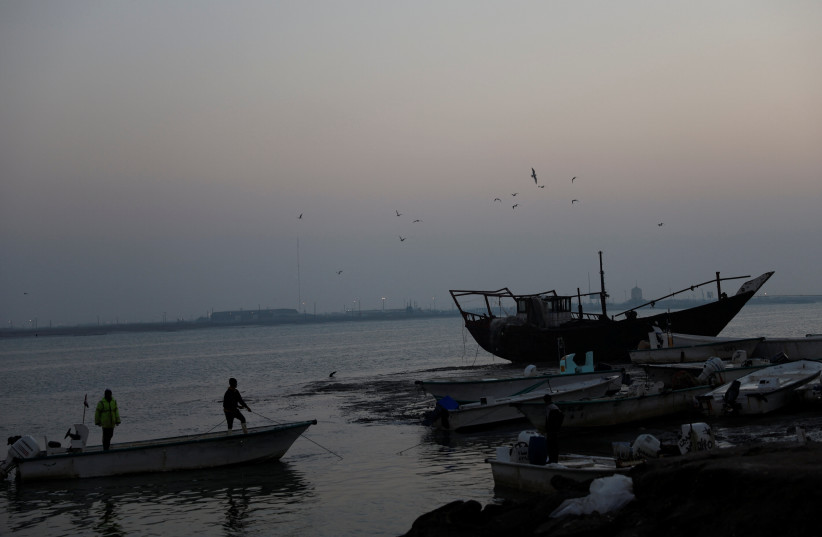An electricity connection will soon begin to supply Iraq with electricity, according to a report last week. The report comes as Iraq also claims it will invest some $17 billion in a development route that is supposed to link Turkey to the Gulf.
It is unclear how Iraq can manage to build up infrastructure when its own electrical grid is often overburdened. Iraq also signed a deal to connect to Saudi Arabia’s electrical grid, according to a 2022 report.
Nevertheless, Iraq is moving forward with a major road and rail network. This will supposedly stretch some 1,200 kilometers across the country.
“Prime Minister Mohamed Shia al-Sudani announced the project during a conference with Transport Ministry representatives from Iran, Jordan, Kuwait, Oman, Qatar, Saudi Arabia, Syria, Turkey and the United Arab Emirates,” VOA reported. Sudani said, “We see this project as a pillar of a sustainable non-oil economy, a link that serves Iraq’s neighbors and the region, and a contribution to economic integration efforts.”
Turkey praised the initiative. “The Route of Development will boost interdependence between the countries of the region,” Turkish Ambassador to Iraq Ali Riza Guney said.

Supposedly, work has already begun in the Port of Al-Faw in southern Iraq. Iraq believes it can build 15 train stations in places such as Basra, Baghdad and Mosul. Ostensibly, this project could dovetail with China’s interest in the Belt and Road Initiative. China recently brokered a deal between Iran and Saudi Arabia.
Infrastructure work in Iraq and Iran
Iran is developing its own north-south economic corridor. It is unclear if the Iranian corridor will be a rival to Iraq. Saudi Arabia and Iran held talks in Iraq in recent years, and Egypt and Jordan have also come to see Iraq as a potential partner.
Iraq has suffered from huge infrastructure problems in recent decades – partly due to sanctions in the 1990s after Saddam’s invasion of Kuwait and due to sectarian infighting after the US-led invasion of Iraq in 2003. US investment after 2003 was largely not manifested in success; instead, billions of dollars were siphoned off or plowed into projects that failed.
When ISIS took over a third of Iraq in 2014, more destruction was wrought due to the war. Cities including Mosul were badly damaged, railroads were ruined, and airports were destroyed.
Iraq also has internal disputes with the autonomous Kurdistan Region about issues such as budgets and oil export. Baghdad often wants to bypass the Kurdistan Region, even though the region is stable and successful. Many Iraqis have moved investments to the Kurdish Region, and Turkey invests heavily there as well.
Iraq has had trouble returning investment to areas harmed by the ISIS war, such as Sinjar. If Iraq does put in new railways, this will be evidence that it has brought security to the country.
Another issue is environmental problems. Iraq has serious environmental challenges. They include pollution in Basra, rivers that are full of pollutants and even filled with debris and sunken vessels, and drinking water that is undrinkable. Protests after 2018 shed light on these problems.
In the north, there are also water problems due to Turkish dams that have apparently made the Tigris River shrink and also led to shortfalls in the water levels of Mosul Dam. This means that across the country, basic issues such as drinking water and electricity are a challenge for Iraq. How the country will become a major road and train hub is unclear.
However, the recent return of Syria to the Arab League may be a hint. With Syria back in the Arab League, Iraq ostensibly can work with Syria and the Gulf states and expand investment in roads and rail. The elephant in the room will then become US forces in eastern Syria that are backing the Syrian Democratic Forces.
Turkey views the SDF as “terrorists,” and Iraq won’t likely be able to build roads or railway crossings to eastern Syria as long as this dispute continues. Border crossings to Syria are often in the spotlight. The Semalka-Faysh Khabur crossing from the Kurdistan Region of northern Iraq to eastern Syria is often closed or has major issues relating to who can cross. The Syrian regime wants to control all the border crossings.
The natural choice for Iraq would be to use the Rabiah crossing north of Sinjar to go through Syria. This is an old crossing that has been closed – at first, due to the war on ISIS and then due to disputes between authorities on both sides.
There is a train station in Rabiah. It is ripe for investment, if anyone will invest and if the local authorities can sort things out. A working electric grid would need to be one of the basic things needed for returning investment in these areas.
